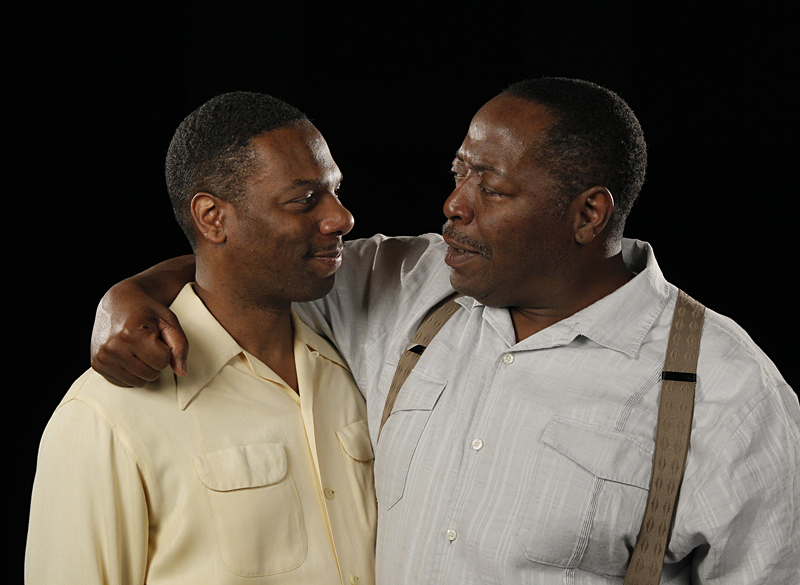Aside from transplanting All My Sons to Seattle’s Central District and transposing Arthur Miller’s modern tragedy from a white to a black cast, director Valerie Curtis-Newton shoulders the unenviable task of trying to invest her show with relevance. After all, a post–World War II play about escaping justice for shipping faulty plane parts that killed 21 pilots seems fairly anachronistic in a country where not so much is made anymore.
Curtis-Newton wisely zeroes in on the crime, and that’s what makes this production as timely as any half-dozen stories cluttering the front pages lately. Whether it’s trapped miners whose boss claimed the mountain he was gutting was “evil,” carmakers whose engines are given to sudden acceleration, or overseas manufacturers who deliberately turn a blind eye to cancer-causing ingredients in their products, nobody seems accountable. On this occasion, though, the noble protagonists are themselves culpable; and, as in The Godfather, they’re harboring a murderer in their midst.
The play opens with the well-to-do Kellers reflecting on the storm that felled the sapling in their yard meant to commemorate their lost son, Larry, an aviator who went missing in the war. There’s plenty of surface bonhomie with the neighbors, but just behind the smiles, a seething resentment bubbles up like toxic sludge whenever the glad-handing turns to whispers. The surviving son Chris (Reginald Jackson) wants to marry Larry’s former girlfriend, despite his mother’s irrational belief that Larry will come traipsing home any day now. Then there’s the matter of those defective cylinder heads, manufactured by the company of family patriarch Joe Keller (Chuck Cooper), which killed those 21 other pilots—somebody else’s sons.
All My Sons does have a few light moments early on, and the cast meanders through them as absently you’d peruse Craigslist on a Sunday morning. But as loyalties shift, a chasm of guilt and recrimination opens beneath the family home. Everyone wants justice, and no one knows how to make anything right again. In Miller’s first successful play, the brutal denouement opens a vein of comeuppance for all concerned.
That this cast is African-American offers only one new twist on Miller’s tale, but it’s a powerful one: In 1947, when black-owned businesses were scarce, Joe’s determination to keep his afloat, at any cost, seems more plausible. Curtis-Newton has crafted a carefully balanced ensemble performance of a taut drama, one of the best in the postwar canon. Seeing it now reminds you that corporate villains were once brought to reckoning. That doesn’t happen so much today (BP, are you listening?), but maybe it should.








